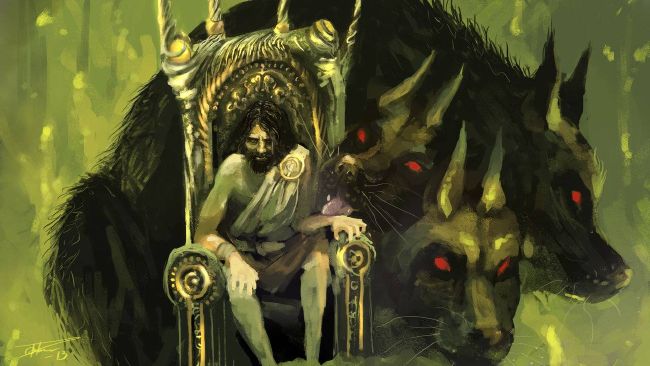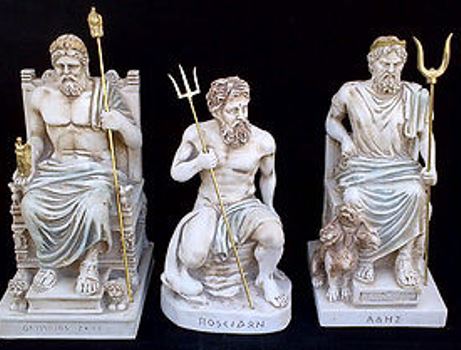- Greek mythology had three minor deities demi-gods serving as the judges of the dead in the underworld — Minos, Rhadamanthus, and Aeacus. Minos was the judge who made the final vote. Rhadamanthus was the judge of the men of Asia and the lord of the Elysium. Aeacus was the guardian of the keys of the underworld and the judge of the men of Europe.
- Oct 19, 2017 - Explore William Fisher's board 'Greek Mythology', followed by 1119 people on Pinterest. See more ideas about greek mythology, mythology, greek and roman mythology.
The god that mortals despised the most. Recommended Annotation Visible only to you. Some Myths about Hades. Hades Falls in Love. Hades and the King of Corinth. Hades, Cerberus and the 12th Labor of Hercules. Hades and Orpheus. Stupefying Facts About Hades – The Greek God of the Dead Speak of Greek mythology and the first thing that comes to your mind is likely to be the trio of Zeus, Poseidon, and Hades. Hades, the Greek god of the dead and divine lord of the underworld, also happens to be the eldest of the three.
Roman name: Pluto, Dis (wealth), Orcus
 Lesen Sie hier, wie man das Formular richtig ausf. Free Programs, Utilities and Apps. Suche dringend Antrag zur Berufsausbildungsbeihilfe, Zeit dr. Berufsausbildungsbeihilfe (. Bab Antrag Pdf Download - Micromax PC Suite and USB Driver Download for all. Die Berufsausbildungsbeihilfe. Antrag auf Leistungen zur Sicherung des Lebensunterhalts nach dem Zweiten Buch Sozialgesetzbuch (SGB II) Zutreffendes. Bitte ankreuzen. Berufsausbildungsbeihilfe (BAB), Wohngeld, Arbeitslosengeld, Rente, Kindergeld) beantragt oder beabsichtige, einen Antrag. Berufsausbildungsbeihilfe Antrag Pdf download free, software Berufsausbildungsbeihilfe! Lesen Sie hier, wie man das Formular richtig ausf. Free Programs, Utilities and Apps. Suche dringend Antrag zur Berufsausbildungsbeihilfe, Zeit dr.
Lesen Sie hier, wie man das Formular richtig ausf. Free Programs, Utilities and Apps. Suche dringend Antrag zur Berufsausbildungsbeihilfe, Zeit dr. Berufsausbildungsbeihilfe (. Bab Antrag Pdf Download - Micromax PC Suite and USB Driver Download for all. Die Berufsausbildungsbeihilfe. Antrag auf Leistungen zur Sicherung des Lebensunterhalts nach dem Zweiten Buch Sozialgesetzbuch (SGB II) Zutreffendes. Bitte ankreuzen. Berufsausbildungsbeihilfe (BAB), Wohngeld, Arbeitslosengeld, Rente, Kindergeld) beantragt oder beabsichtige, einen Antrag. Berufsausbildungsbeihilfe Antrag Pdf download free, software Berufsausbildungsbeihilfe! Lesen Sie hier, wie man das Formular richtig ausf. Free Programs, Utilities and Apps. Suche dringend Antrag zur Berufsausbildungsbeihilfe, Zeit dr.
Epithets: Aïdoneus (the Unseen One), All-Receiver, Pluto (wealth)
Symbols: scepter, grain (fertility), rooster (fertility), Cerberus
Functions: God of the Underworld and the dead

Hades was one of the children of Cronus and Rhea whom their father swallowed. After being rescued by his brother Zeus and helping Zeus gain control of the cosmos [see Origins], the three brothers Zeus, Poseidon, and Hades, all drew lots to decide who would rule over various parts of the world [See Zeus]. Hades became the ruler of the underworld. Hades was married to his niece, Persephone, whom he abducted [See Demeter].
There are very few myths about Hades, other than the story of how he abducted and married Persephone. Download total video converter full versionupstart. After the kerfuffle created by this incident had subsided, Hades and Persephone seem to have settled down to a rather ordinary married life as King and Queen of the Dead.
Hades All About Myths Debunked
The name of the Underworld is sometimes referred to as Erebus (Ἔρεβος), which means “darkness” in Greek, but it is more frequently called the House of Hades. In practice, however, the name, “House of Hades,” is usually shortened to just “Hades.” For this reason, the term “Hades” refers to both the name of the god and the name of the place over which he rules. Different authors describe Hades (the Underworld) differently, but there are several common features. The three-headed dog, Cerberus, acts as a guard dog who prevents dead souls from escaping as well as preventing live people from getting in. There are several rivers in Hades, including the Styx (Στύξ, meaning “hateful”), the river that the gods swear by and the Acheron (Ἀχέρων; meaning “woeful”). Later authors added the river Lethe (Λήθη, meaning “forgetfulness”), which causes the souls who drink from it to forget their past lives; see Plato, Republic 10.621 a-d and Vergil, Aeneid 6.714-715.
Hades Myths And Legends


Hades All About Myths Zeus
For most people, the Underworld was a hollow existence where their souls slowly lost consciousness and continued on as shells of their former selves. (For an extended portrayal of the souls in Hades, see Homer, Odyssey, Book 11.) The Islands of the Blessed, however, sometimes called Elysium or the Elysian Fields, was a place where a select group of souls lived in bliss. They kept their former personalities as well as their consciousness, and they continued to pursue the activities that had brought them pleasure while they were alive. Homer says that Elysium is reserved for the close relatives of the gods (Homer, Odyssey, 4.561-569) while later authors, like Pindar (Olympians 2.68-78), suggest that a virtuous life would allow a soul to spend eternity in Elysium.
